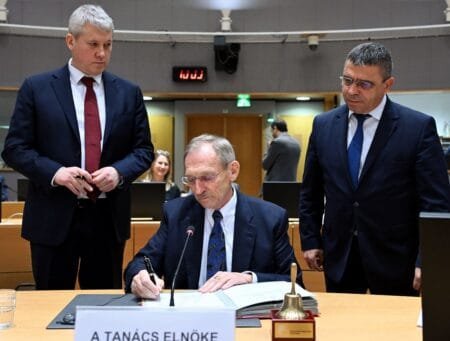The Holocaust, the genocide of some 11 million Europeans, including Jews, Romani and homosexuals, during the Second World War will forever remain in our minds and history books as one of the most horrific events of our world. Seeking to get a handle on the dispersed information available for Holocaust research across Europe and elsewhere is a key objective of European researchers. Enter the European Holocaust Research Infrastructure (EHRI) project, whose partners will consolidate existing Holocaust archives into a single online database. This latest venture will enable historigraphical progress and collaborative research in one of the most significant areas of history.
Backed with EUR 7 million in funding from the EU and 20 partner organisations from 11 EU Member States as well as Israel and Norway, the EHRI will create a database for researchers, educators and students who seek to understand the history of modern Europe. It is the first time that the EU Framework Programme for Research offers financial support to a large-scale European research infrastructure initiative on Holocaust archives.
Various Holocaust material, such as documents, objects, photos, film and art, will be made available to the public. ‘This joint effort of highly respected institutes worldwide, is about giving access to archives and connecting collections,’ explained EHRI Director Dr Conny Kristel. ‘In this way, many more researchers but also the public at large, will profit from and contribute a higher level of Holocaust knowledge and awareness.
One of the key objectives of the project is to stimulate and facilitate research into areas of the Holocaust that are not yet known, with particular focus given to eastern Europe. The project will also contribute to efforts made by the relatives of Holocaust victims who seek to trace information on them.
Speaking at the launch of the EHRI in Brussels, Belgium on 16 November, Commissioner for Research, Innovation and Science Máire Geoghegan-Quinn said: ‘It is very timely that we are launching the EHRI initiative in 2010, a year during which the world commemorates the 65th anniversary of the liberation of Auschwitz, a potent symbol of the Holocaust. It is now a little more than 20 years since we witnessed the reunification of Europe, and with this, the opening up of many archives in the countries of central and eastern Europe.’
It is important that the EHRI ensure that the proof of the Holocaust is entrenched in the minds of everyone, young and old, both in Europe and abroad. ‘There are, unfortunately, still some people who, in the guise of promoting research and debate, question the scale, if not the very fact of the Holocaust,’ the Commissioner underlined. ‘Our resolve that we must never again witness atrocities such as those of the Holocaust lies at the very heart of the foundation of the EU.’
Commissioner Geoghegan-Quinn also recalled how the European Commission and 46 nations signed in 2009 in Prague, Czech Republic the ‘Terezin Declaration on Holocaust-era assets and related issues’. This declaration is a non-binding set of guiding principles targeting faster and transparent restitution of art, private and communal property taken by force or under duress during the Holocaust. It also puts emphasis on the potential of Holocaust archives for driving research and education on the Holocaust and other Nazi crimes.
The EHRI is coordinated by NIOD, the Institute for War, Holocaust and Genocide studies in Amsterdam, the Netherlands.
Source: Community R&D Information Service (CORDIS)




